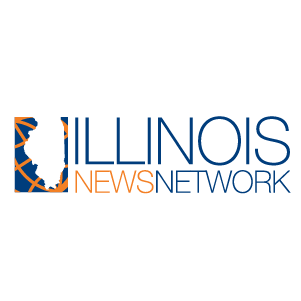Rauner addresses need to fight hunger among school kids
Gov. Rauner proclaims Illinois School Breakfast Week, Breakfast Challenge encourages schools to serve breakfast to children at risk of going hungry
CHICAGO (Feb. 26, 2015) – New research shows that schools provided only 36.2 percent of federally funded breakfasts needed to serve low-income schoolchildren in 2013-2014, meaning hundreds of thousands of children are at risk of going hungry in the classroom. Illinois leaves $90.4 million in federal funding on the table because the breakfast program is not fully utilized. Experts view school breakfast as a vital program for addressing food insecurity. More than 660,000 children in Illinois—1 in 5—are food insecure, meaning they are uncertain of their next meal.
“Providing breakfast is a daily struggle for families doing everything they can to make ends meet,” said Kate Maehr, Co-Chair of the Illinois Commission to End Hunger and Executive Director and CEO of the Greater Chicago Food Depository. “The National School Breakfast Program was created in 1966 to ensure that children start the day with a meal. Yet there are many obstacles that keep breakfasts from being served.”
The Illinois School Breakfast and Lunch Program Act requires schools to serve breakfast if more than 40 percent of students qualify for free or reduced-price meals. But many schools serve breakfast well before buses arrive or in isolated cafeterias far from classrooms. The Rise and Shine Illinois school breakfast campaign advocates for the utilization of alternative breakfast models like Breakfast in the Classroom and Grab N Go. The campaign aims to increase meals by providing schools with infrastructure grants and technical assistance.
Gov. Bruce Rauner has proclaimed the week of Feb. 23 Illinois School Breakfast Week. Organizers of Rise and Shine Illinois and other community leaders will be available for comment at a kickoff event on Thursday, Feb. 26, 2015, 8:30 a.m., at Hope Academy Elementary School, 955 N. Illinois Street, Decatur, as breakfasts are served to students. The data release coincides with Rise and Shine Illinois’ 2015 Breakfast Challenge, an effort funded by Midwest Dairy Council that offers incentives to schools that increase school breakfast participation.
“The Midwest Dairy Council and Illinois Dairy Farmers are proud to partner with the Rise and Shine Illinois campaign to bring more school breakfasts to students,” said Robin Brown, Director of Health & Wellness of Midwest Dairy Council. “We are happy to help students start their school day in a healthy way.”
The Rise and Shine Illinois school breakfast campaign and the Social IMPACT Research Center at Heartland Alliance teamed up to analyze three years of meal data provided by the Illinois State Board of Education. The findings are published today in the Illinois School Breakfast Report 2013-2014, including school district and individual school data, at www.riseandshineillinois.org. Average daily participation per school has increased in the state during the past three years, from 106.1 students in 2011-2012 to 115.2 students in 2013-2014. For severe need schools, the U.S. Department of Agriculture (USDA) reimbursed meals at the rate of $1.89 for free and $1.59 for reduced breakfasts in the 2013-2014 school year. For non-severe need schools, the reimbursement rate was $1.58 for free and $1.28 for reduced breakfasts.
“Illinois School Breakfast Week is an opportune time to recognize the importance of USDA’s School Breakfast Program to children’s nutrition and health. Research has shown that the School Breakfast Program makes a positive difference in children’s lives. We know that when children eat breakfast at school, they perform better academically, their attendance and classroom behavior improves, and they make fewer trips to the school nurse. We also know that children who eat a healthy breakfast are more likely to maintain a healthy weight and avoid obesity-related health problems,” said Tim English, Midwest Regional Administrator for USDA’s Food and Nutrition Service. “We applaud the efforts of Rise and Shine Illinois, its community partners, and the Illinois State Board of Education to help more Illinois children benefit from a healthy school breakfast.”
In addition to the implementation of alternative models, the report recommends: support for breakfast funding through the 2015 federal Child Nutrition Reauthorization; and increased utilization of the Community Eligibility Provision, which enables high-poverty schools to serve meals to all students at no cost. Members of the public can get involved by taking the “breakfast pledge” at www.riseandshineillinois.org, or by asking school leaders about the status of breakfast at their local school.
“This analysis highlights the great opportunity Illinois has to improve the provision of school breakfast to children,” said Amy Terpstra, Director of Research at the Social IMPACT Research Center. “Working to improve on the fact that only 36% of all possible breakfast meals are being served to low-income children will help ensure that no Illinois child struggles in school because he or she is hungry.”
About Rise and Shine Illinois
The Rise and Shine Illinois campaign is a partnership of Central Illinois Foodbank, EverThrive Illinois, Greater Chicago Food Depository, Illinois Coalition for Community Services, Illinois Hunger Coalition, Midwest Dairy Council and St. Louis Area Foodbank, with support from the national child hunger organization Share Our Strength and the JB and MK Pritzker Family Foundation. The campaign addresses child hunger by advocating for the expansion of school breakfast through alternative service models. For more information, visit www.riseandshineillinois.org. Follow Rise and Shine Illinois on Twitter @RiseAndShineIL or on Facebook at www.facebook.com/RiseAndShineIL.
About the Social IMPACT Research Center at Heartland Alliance
The Social IMPACT Research Center at Heartland Alliance conducts applied research for nonprofits, foundations, advocacy groups, governments, coalitions, and the media to help them measure, inform, and grow their social impact. IMPACT also regularly reports on key poverty trends to equip decision makers with sound data to inform public policy. For more information, visit: www.socialimpactresearchcenter.org or follow us on Twitter at https://twitter.com/IMPACTHeartland or like us on Facebook at https://www.facebook.com/social.impact.research.
Related articles
Ray Hanania
Hanania Chicago political beats and Chicago City Hall at the Daily Southtown Newspapers (1976-1985) and the Chicago Sun-Times (1985-1992). He published the The Villager Community Newspapers covering 12 Southwest suburban regions (1993-1997). Hanania also hosted live political news radio talkshows on WLS AM (1980 - 1991), and also on WBBM FM, WLUP FM, WSBC AM in Chicago, and WNZK AM in Detroit.
Hanania is the recipient of four (4) Chicago Headline Club “Peter Lisagor Awards” for Column writing. In November 2006, he was named “Best Ethnic American Columnist” by the New American Media;In 2009, he received the prestigious Sigma Delta Chi Award for Writing from the Society of Professional Journalists. Hanania has also received two (2) Chicago Stick-o-Type awards from the Chicago Newspaper Guild, and in 1990 was nominated by the Chicago Sun-Times for a Pulitzer Prize for his four-part series on the Palestinian Intifada.
Hanania’s writings have been published in newspapers around the world. He currently is syndicated through Creators Syndicate. He has written for the Jerusalem Post, YNetNews.com, Newsday in New York, the Orlando Sentinel, the Houston Chronicle, The Daily Star of Lebanon, the News of the World in London, the Daily Yomimuri in Tokyo, Chicago Magazine, the Arlington Heights Daily Herald, The Saudi Gazette, the Arab News in Jeddah, and Aramco Magazine.
Hanania's Chicagoland columns are published in the Southwest News-Herald, the Des Plaines Valley News, the Regional News and the Palos Reporter newspapers.
He is President/CEO of Urban Strategies Group media and public affairs consulting which has clients in Illinois, Florida, Michigan and Washington D.C.
His personal website is www.TheMediaOasis.com. Email him at: [email protected].
Latest posts by Ray Hanania (see all)
- Rewards Cards are so unrewarding - August 20, 2015
- Netflix summer camp series a hilarious romp - August 17, 2015
- Schools and our disappearing summer vacations - August 13, 2015










